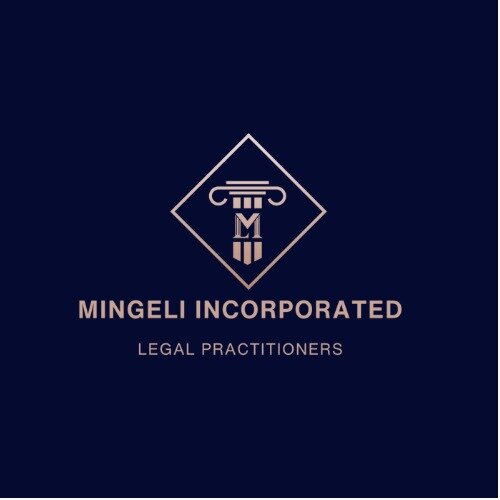Best Immigration Lawyers in Namibia
Share your needs with us, get contacted by law firms.
Free. Takes 2 min.
Or refine your search by selecting a city:
List of the best lawyers in Namibia
About Immigration Law in Namibia
Immigration law in Namibia governs the entry, stay, and work of non-citizens within the country's borders. As a developing nation, Namibia welcomes skilled workers, investors, and tourists, while maintaining strict regulatory measures to control illegal immigration and protect national interests. The primary legislation surrounding immigration is the Immigration Control Act, which outlines the processes for obtaining visas, residence permits, and work permits, among other related issues.
Why You May Need a Lawyer
There are several scenarios where one might require legal assistance in immigration matters. These include:
- Complex visa applications: Navigating the different types of visas (e.g., tourist, work, student) can be challenging without legal expertise.
- Residency and work permits: Legal aid may be necessary to ensure compliance with local regulations and successful application processing.
- Appeals and immigration violations: In case of visa denials or alleged violations of immigration laws, a lawyer can provide representation and advice.
- Business immigration: Companies looking to employ foreign nationals may require guidance on how to maneuver the immigration system for their employees.
Local Laws Overview
The key aspects of local immigration laws in Namibia include:
- Visa Requirements: Different types of visas and relevant conditions must be adhered to, including work, study, and tourist visas.
- Residency Permits: There are specific pathways for obtaining temporary or permanent residency, depending on individual situations such as marriage to a Namibian citizen or long-term employment.
- Work Permits: Employers must apply for a work permit on behalf of the foreign employee, demonstrating that no local candidate is available for the position.
- Compliance and Enforcement: Immigration laws require strict compliance, and violations can result in fines, deportation, or bans from re-entry.
Frequently Asked Questions
What types of visas are available in Namibia?
Namibia offers several types of visas, including tourist visas, work visas, study visas, and business visas. Each category has specific requirements and limitations.
How do I apply for a residence permit in Namibia?
Residency applications are made through the Ministry of Home Affairs and Immigration, requiring proof of employment or familial relation to a Namibian citizen, among other documents.
Can I work in Namibia with a tourist visa?
No, working on a tourist visa is illegal in Namibia. A work visa or permit is mandatory for employment.
What is the process for renewing a visa in Namibia?
Visa renewal must be initiated before the current visa expires, through the Ministry of Home Affairs. Necessary documentation and reasons for extension need to be provided.
What are the consequences of overstaying a visa in Namibia?
Overstaying can result in fines, deportation, and potential bans on future entry to Namibia.
Are there paths to permanent residency in Namibia?
Yes, individuals may apply for permanent residency after a certain period of lawful continuous residence, typically contingent upon their visa type or familial ties.
How do work permits affect my spouse and children?
Spouses and children can apply for residence permits as dependents, allowing them to stay in Namibia but not work unless they secure their own work permits.
Can a visa denial be appealed?
Yes, but appeals must be lodged within a specified timeframe and should provide additional supporting information or clarification.
What is the role of the Ministry of Home Affairs and Immigration?
The Ministry oversees immigration policies, processes visa and permit applications, and enforces compliance with immigration laws.
Is it necessary to hire a lawyer for immigration processes?
While not mandatory, hiring a lawyer can be beneficial in complex cases or when dealing with refusals, appeals, or compliance issues.
Additional Resources
The following are useful resources for additional information on immigration in Namibia:
- Ministry of Home Affairs and Immigration
- Namibian embassies and consulates globally
- Legal aid organizations providing specialized immigration assistance
- Immigration law firms offering consultations
Next Steps
If you need legal assistance in immigration matters in Namibia:
- Consult with an established immigration lawyer or law firm specializing in Namibian immigration law.
- Gather all relevant personal documents, including passports, prior visas, and employment or school records, for review by your legal advisor.
- Ensure clear communication of your immigration goals and any issues you face to receive tailored advice.
- Consider attending seminars or workshops on immigration law hosted by legal professionals or governmental organizations.
Lawzana helps you find the best lawyers and law firms in Namibia through a curated and pre-screened list of qualified legal professionals. Our platform offers rankings and detailed profiles of attorneys and law firms, allowing you to compare based on practice areas, including Immigration, experience, and client feedback.
Each profile includes a description of the firm's areas of practice, client reviews, team members and partners, year of establishment, spoken languages, office locations, contact information, social media presence, and any published articles or resources. Most firms on our platform speak English and are experienced in both local and international legal matters.
Get a quote from top-rated law firms in Namibia — quickly, securely, and without unnecessary hassle.
Disclaimer:
The information provided on this page is for general informational purposes only and does not constitute legal advice. While we strive to ensure the accuracy and relevance of the content, legal information may change over time, and interpretations of the law can vary. You should always consult with a qualified legal professional for advice specific to your situation.
We disclaim all liability for actions taken or not taken based on the content of this page. If you believe any information is incorrect or outdated, please contact us, and we will review and update it where appropriate.
Browse immigration law firms by service in Namibia
Namibia Attorneys in related practice areas.
Browse immigration law firms by city in Namibia
Refine your search by selecting a city.









